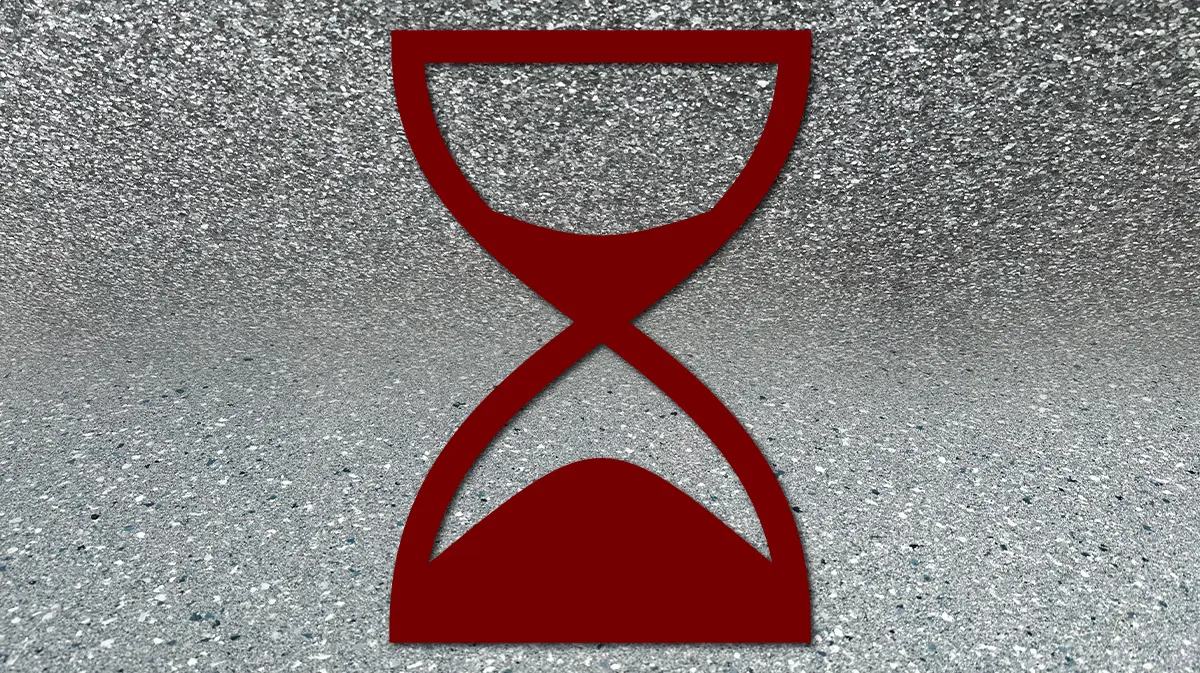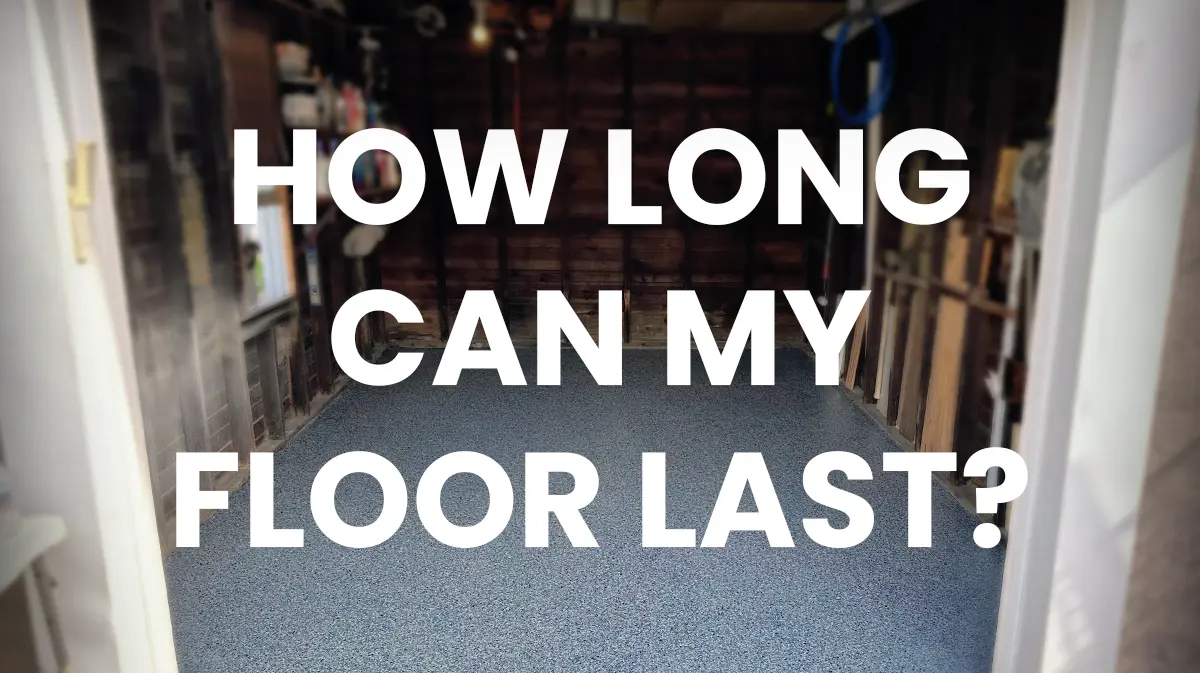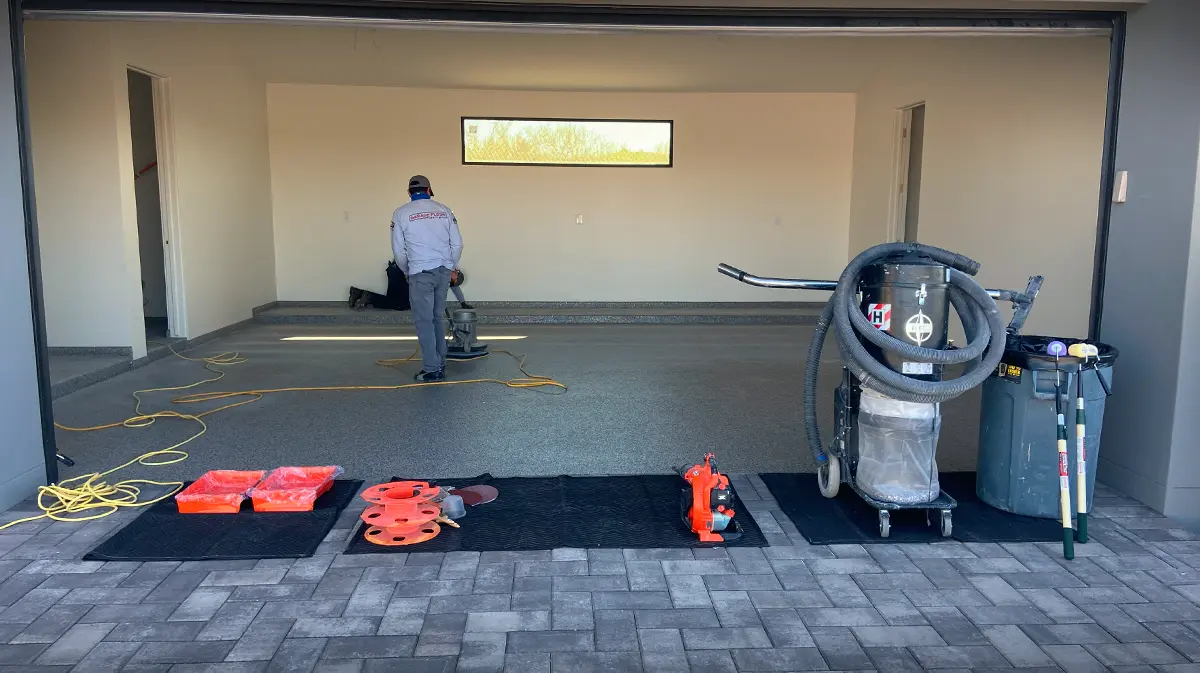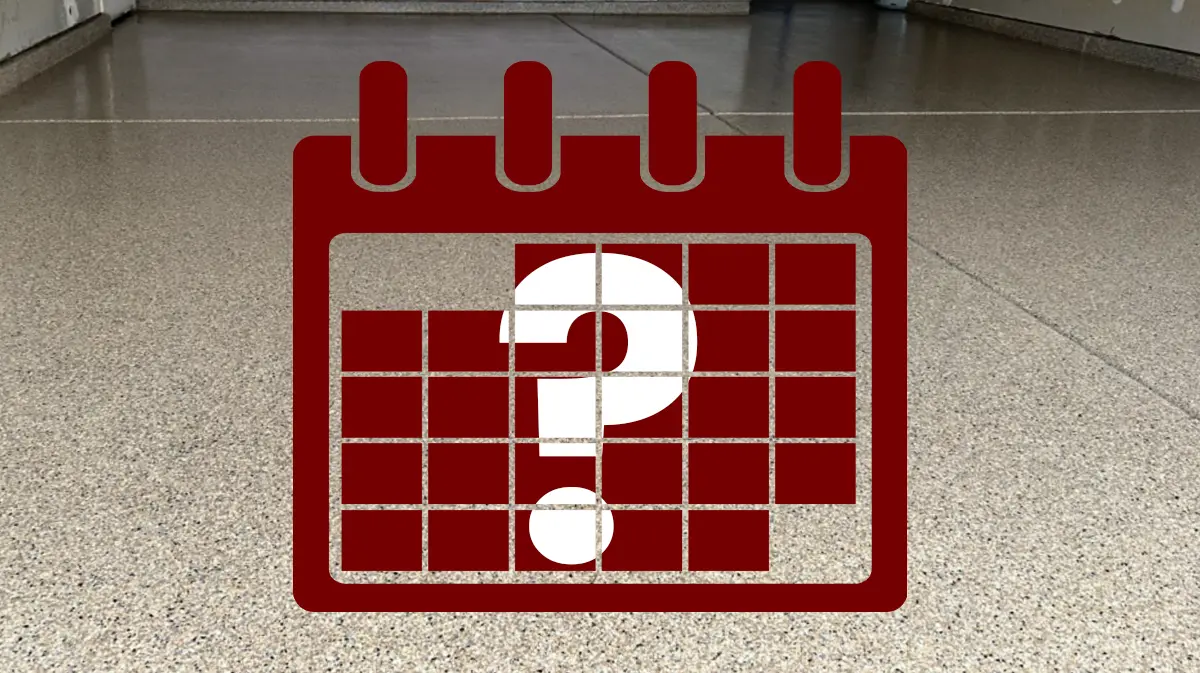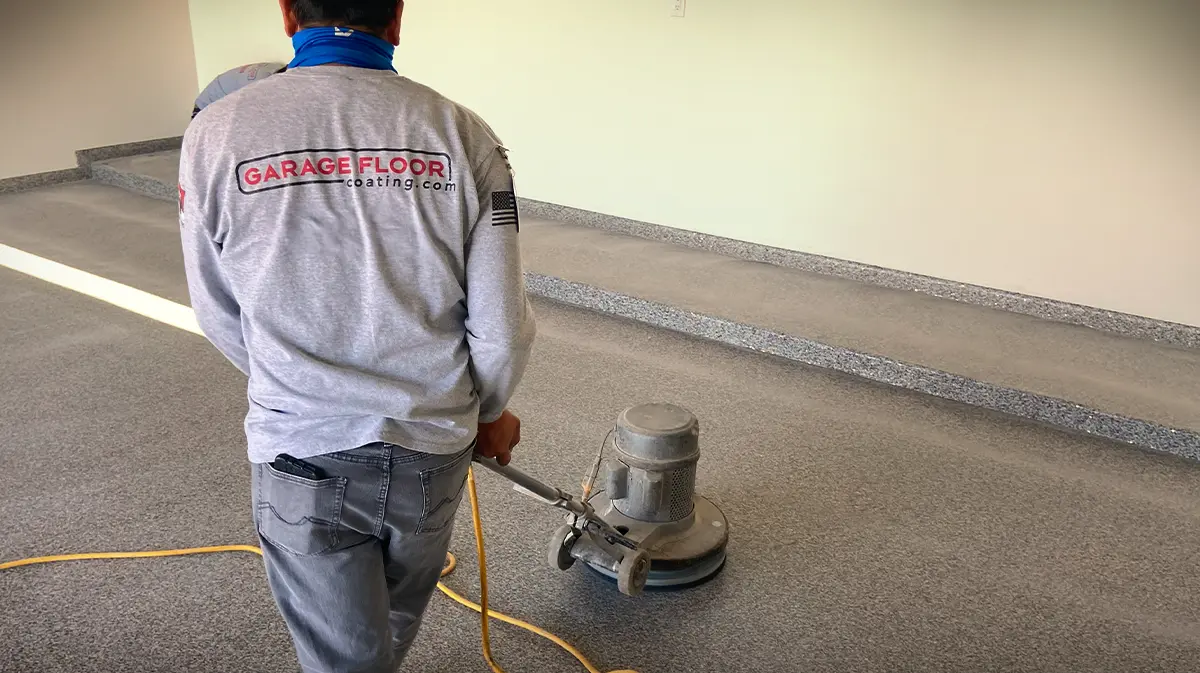If you want to protect your garage floor in Pennsylvania, you need more than just a basic coating. Between hot summers, heavy rainfall, and freezing winters, garage floors endure significant wear and tear. But what should be the lifespan of garage floor coatings? The answer lies in the science behind the materials and the installation process.
Understanding the Lifespan of Garage Floor Coatings
The durability of a garage floor coating depends on two critical factors: the coating products used and the method of application. Coatings like epoxies or polyurea-polyaspartics can last anywhere from 5 years to over 20 years, but only if installed correctly. The longer-lasting systems usually involve a 2-day installation process, that incorporates a moisture vapor barrier (i.e., where both a moisture-mitigating epoxy primer and polyaspartic topcoats are applied). These systems outperform the faster 1-day installations, which skip essential steps for long-term durability.
Lifespan of Garage Floor Coatings: 1-Day Systems – What Are They Missing?
In Pennsylvania, where the winters can be brutal, 1-day systems simply don’t hold up. These systems use a thin layer of polyurea or polyaspartic direct-to-concrete (i.e., as the primer coat). These products are excellent for use as clear top coats, but very poor as primer coats. Why? Because the can only be applied thinly and cure so quickly in the presence of concrete moisture that they fail to deeply penetrate the concrete substrate. They are used as primer coats only because they cure quickly, so the installer can get the job done in the promised “1 day”.
However, this shortcut leaves the floor vulnerable to cracking, peeling, and bubbling—issues that arise when moisture from the ground seeps up through the concrete and creates a hydrostatic pressure. The pressure pushes upward on the wafer-thin, poorly penetrating primer and “pop” goes the coating. It’s important to know that the entire coating system is only as strong as its primer coat!
Without a high-build (thick), slow-curing, moisture-mitigating epoxy primer, water infiltration breaks down the adhesion between the coating and the concrete over time. This causes early failures, especially in climates with freeze-thaw cycles like Pennsylvania’s.
2-Day Systems: The Right Way to Do It
We prioritize quality over speed. Our 2-day system starts with a high-build, moisture-mitigating 100%-solids epoxy primer applied on the first day. This slow-curing primer deeply penetrates the concrete (we provide a full day for curing) and creates a strong bond with the concrete. So thick and strongly bonded is this moisture vapor barrier, that it mitigates moisture and resulting hydrostatic pressures. On the second day, we apply two layers of 100% solids polyaspartic topcoats (not only one like the 1-day systems). These topcoats not only protect against UV damage and chemical spills, but they also mitigate for hot-tire transfer. Unlike the 1-day systems, we are confident enough in our systems to warrant all moisture-related issues and hot-tire transfer (no warranty exclusions in this regard).
With this dual-layer system, your garage floor will last for 20 years or more in even the harshest Pennsylvania weather.
Why Eco-Corflex Products Matter
We exclusively use Eco-Corflex products, which have been tested for over 25 years. These 100%-solids coatings are built to withstand challenging climates like Pennsylvania’s, where you face hot summers, wet springs, and freezing winters. Eco-Corflex products ensure that your floor not only looks good but performs well for decades. Ask your contractor if they are using 100%-solids polyurea or polyaspartic in their coating systems. You may be surprised to learn that the answer if often “No”.
Get in Touch
If you’re in Pennsylvania and looking for an epoxy floor that will last, it’s crucial to invest in a 2-day system that provides the necessary protection. Contact GarageFloorCoating.com today for a consultation and see how we can help protect your garage floor for years to come.

